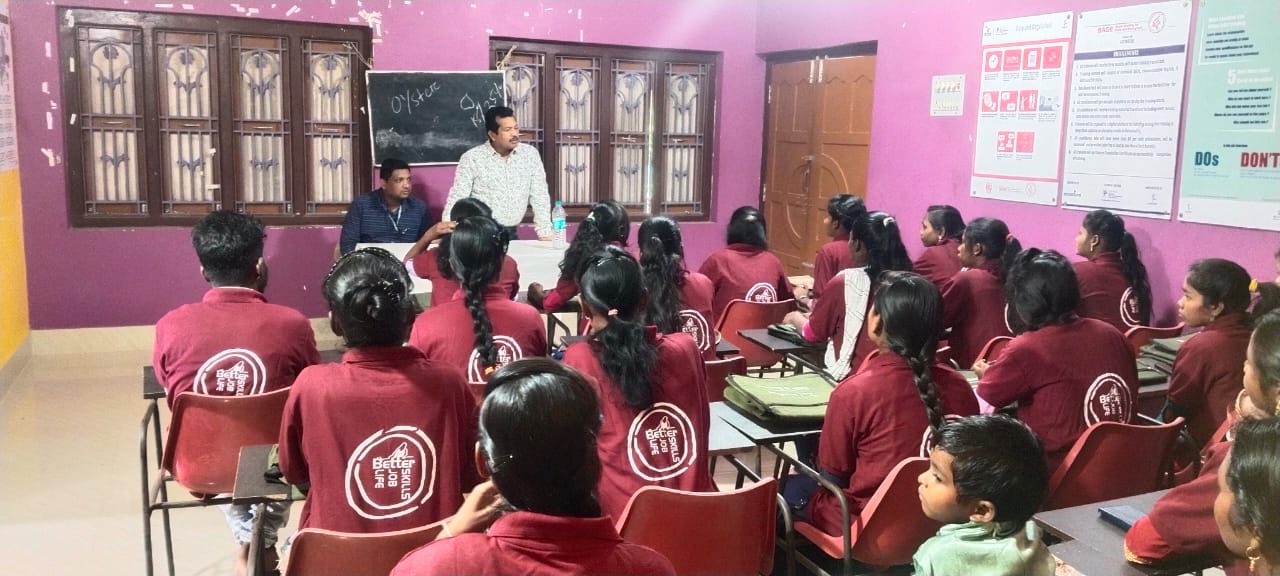Guest Lecture of Batch - 6 Organic Grower Job Role Skills to Succeed 24-25
14 Dec 2024

On December 14, 2024, Don Bosco Tech, Thakurmunda, hosted an engaging and thought-provoking guest lecture that left an indelible mark on the minds of Batch 6 Organic Growers trainees. The event featured an eye-opening session by Mr. Badal Kumar Das, the esteemed Block Agriculture Officer of Thakurmunda Block, Government of Odisha. With his profound expertise in sustainable agriculture, Mr. Das illuminated the exciting possibilities for the future of organic farming, sparking both curiosity and inspiration among the attendees.
The day began with a dynamic introduction by domain trainer Mr. Abhimanyu Behera, who set the stage for an enriching learning experience. Mr. Das, known for his deep knowledge of sustainable agriculture, captivated the audience with a passionate talk on organic farming. He introduced the trainees to the core principles of organic cultivation, which emphasize working in harmony with nature. Organic farming, as he explained, goes beyond avoiding synthetic chemicals – it’s about fostering an ecosystem where soil health, biodiversity, and sustainability take center stage.
Mr. Das outlined several crucial practices that form the backbone of organic farming. He highlighted the importance of soil management and shared cutting-edge techniques that promote soil fertility without compromising the environment. Composting, green manure, and the use of organic matter were just some of the strategies he discussed to enrich the soil, enhance its water retention, and ultimately improve crop yield.
As the session progressed, Mr. Das introduced a treasure trove of innovative approaches to organic farming that left the trainees eager to implement them. He demonstrated the use of natural fertilizers and organic inputs that can replace harmful synthetic chemicals. Techniques such as vermi-composting, the preparation of jeewamrit, and the application of herbal sprays were explored in detail. By focusing on these sustainable practices, Mr. Das emphasized how organic farming not only produces healthier crops but also nurtures the land for generations to come.
But Mr. Das didn’t stop there—he also highlighted government schemes aimed at promoting organic farming. His insights into how trainees could leverage these resources to fuel their farming ventures were both practical and encouraging. He urged the audience to embrace organic farming, stressing that the transition from conventional to organic methods is not only a necessary shift for environmental well-being but also an economically viable option in the long run.
The lecture reached its peak with a lively and insightful Q&A session, where Mr. Das answered the trainees' questions with patience and expertise, offering practical solutions to real-world challenges in organic farming. His thoughtful responses underscored the importance of adopting sustainable farming practices that are not only beneficial to the farmers but also to the ecosystem at large.
As the session drew to a close, Support Domain Trainer Mrs. Rasmita Behera delivered a heartfelt vote of thanks, expressing profound gratitude to Mr. Das for his invaluable contribution. She praised his unwavering dedication to empowering the next generation of organic farmers and emphasized how the session had inspired a collective commitment to pursuing sustainable agriculture.
This enlightening event was more than just a lecture—it was an invitation to rethink farming practices and embrace a future that harmonizes agricultural success with environmental stewardship. For the trainees of Batch 6, it was a day brimming with new knowledge, fresh perspectives, and an invigorated sense of purpose as they embarked on their journey toward becoming leaders in the world of organic farming.